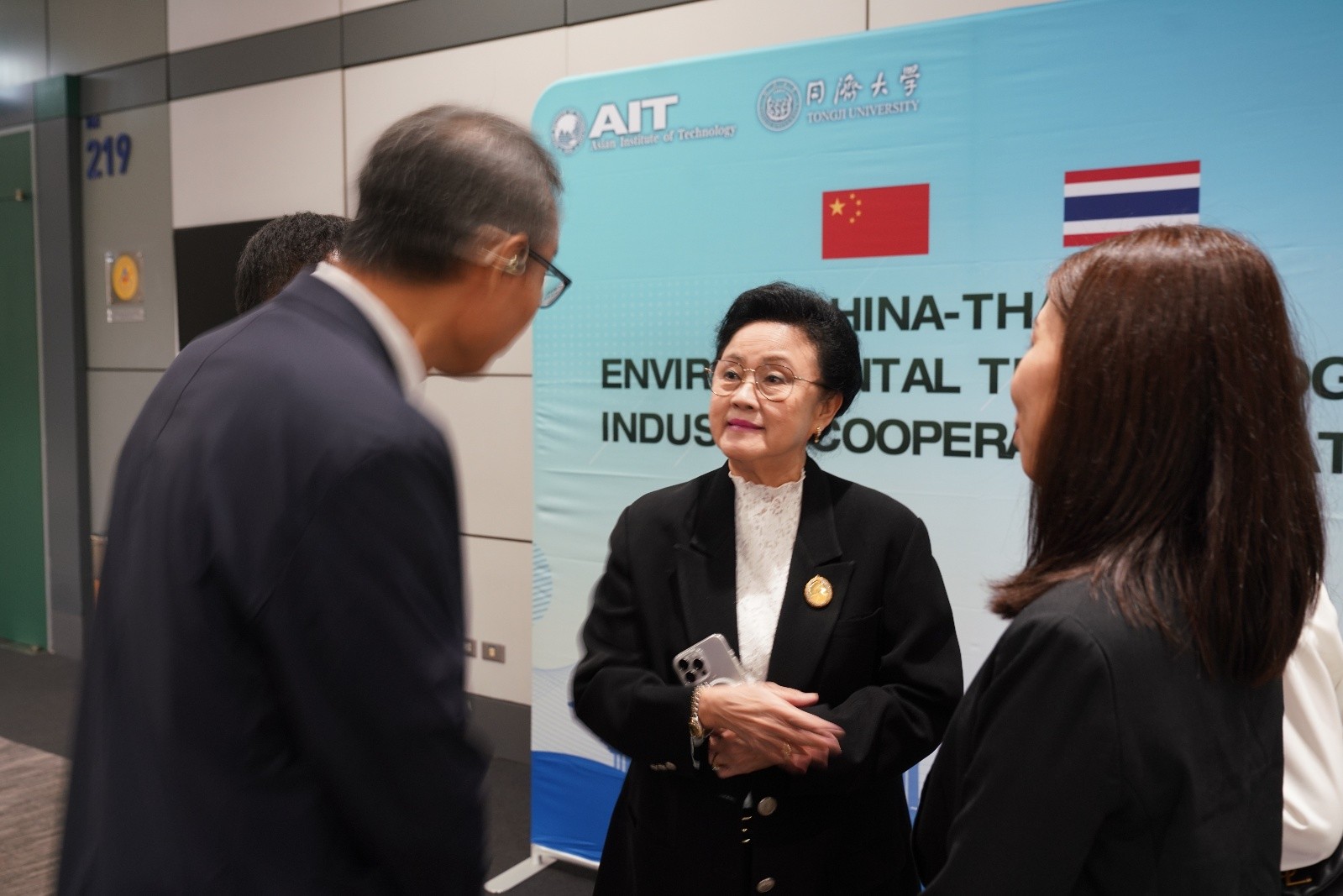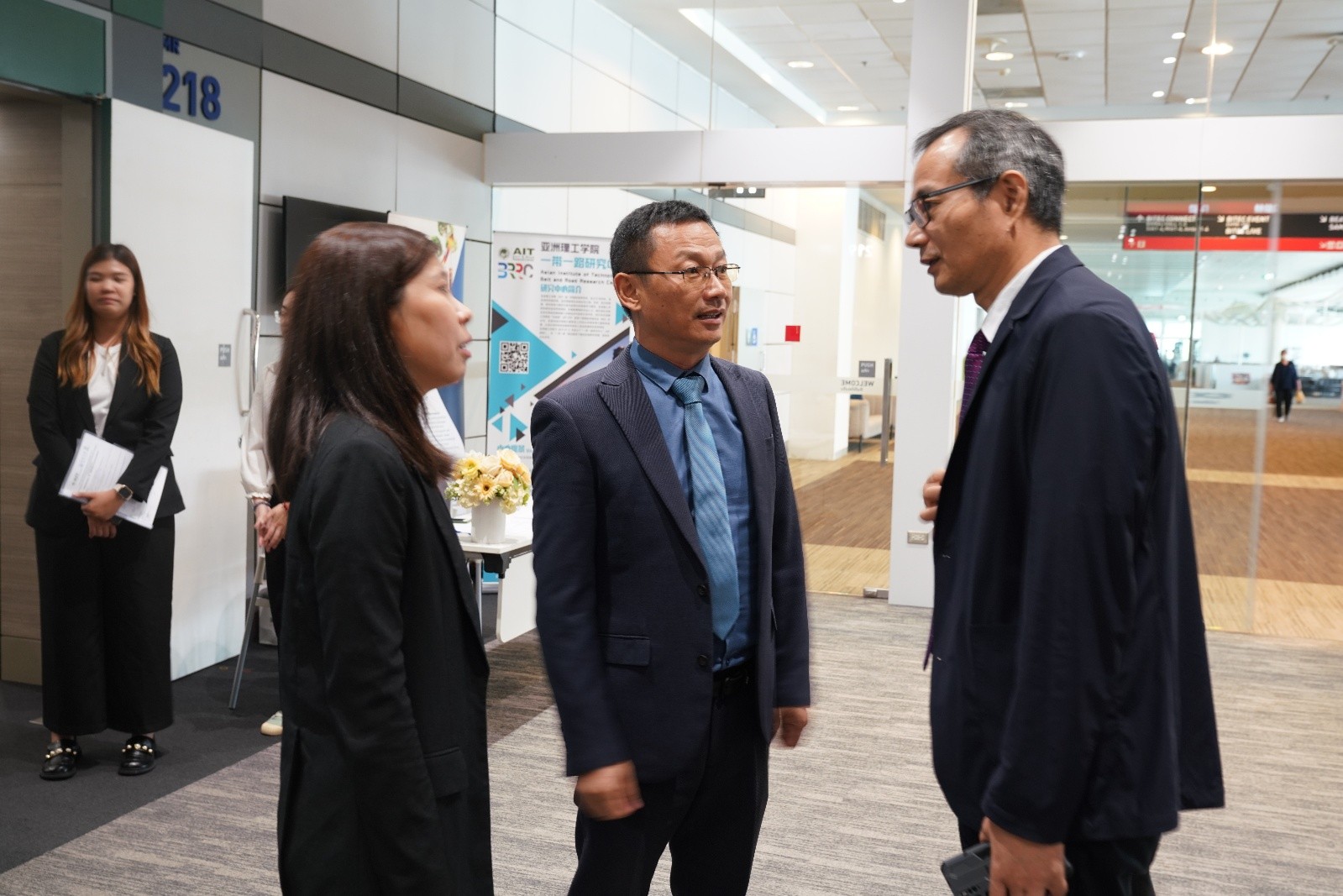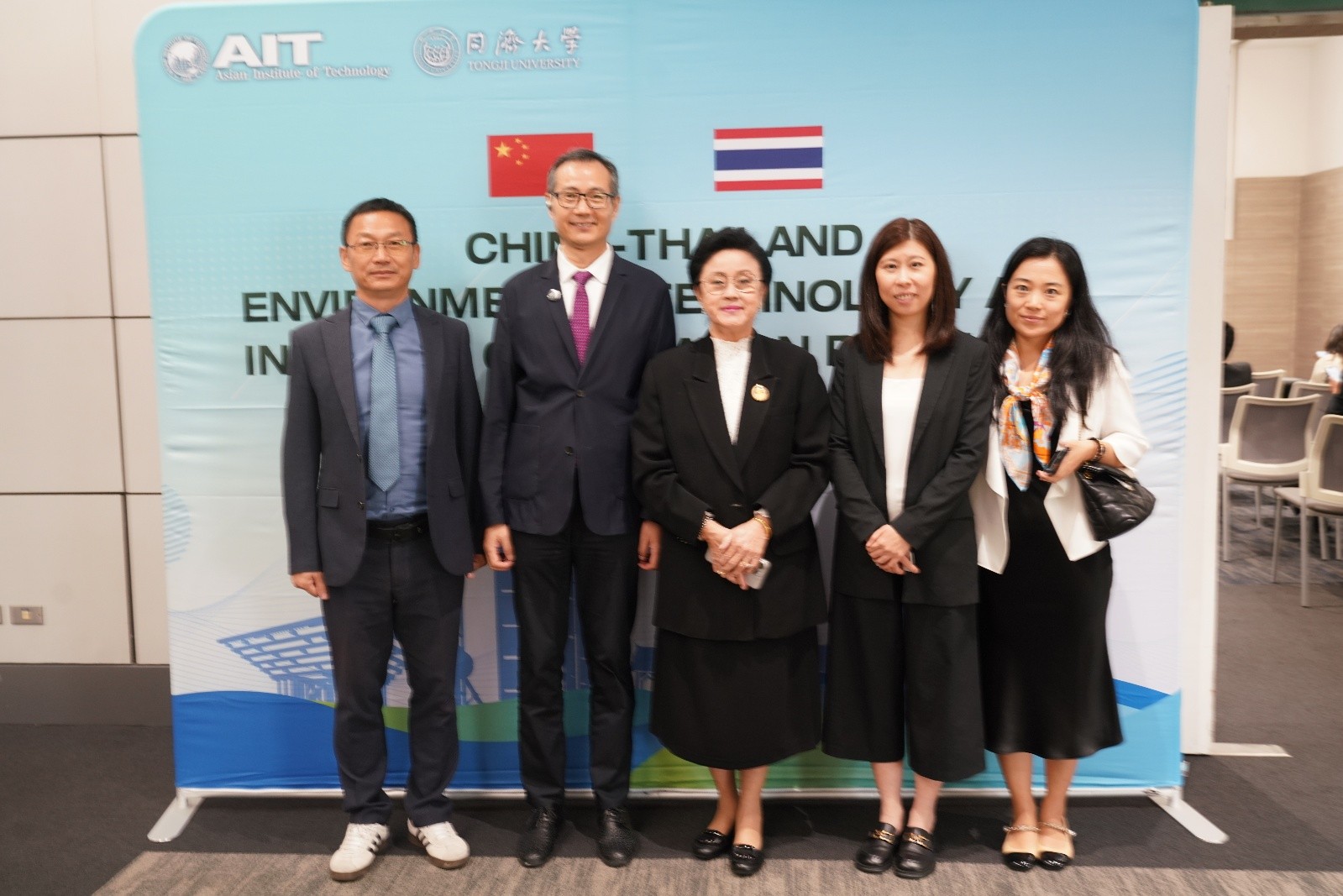On October 24th, 2024 – The AIT Belt and Road Research Center (BRRC) collaborated with Tongji University, China, and the E20 Environmental Platform to co-organize “The China-Thailand Environmental Cooperation Forum and Launching Ceremony of the China-Thailand Environmental Technology and Industry Cooperation Platform” at BITEC, Bangna, Bangkok, Thailand. This forum aimed to strengthen connections and explore collaborative opportunities between China and Thailand in environmental protection, bringing together representatives from governmental, academic, and industrial sectors.

Dr. Suwit Khunkitti, Vice Chairman of the AIT Board of Trustees and Former Deputy Prime Minister and Former Minister of Education of Thailand, delivered a welcome address, setting the stage for impactful discussions. Opening remarks were given by Mr. Wang Qiang, First Secretary of the Chinese Embassy in Thailand, and Mr. Yang Chunlin, Second-Level Inspector of the Shanghai Municipal Bureau of Ecology and Environment, China. They highlighted the Chinese government’s environmental achievements and ambitions, along with Shanghai’s industrial efforts toward green and sustainable development.



Prof. Pisut Painmanakul of Chulalongkorn University’s Department of Environmental and Engineering delivered a keynote titled “Thailand’s Efforts in Environmental Protection: Achievements and Future Directions.” He underscored Thailand’s progress in reducing carbon emissions, managing plastic waste, and expanding renewable energy through community-driven sustainability projects. Future priorities include advancing carbon management, waste reduction, climate adaptation, and promoting sustainable business practices through public-private partnerships and circular economy initiatives. Prof. Li Fengting, Deputy Dean of the School of Environmental Science and Engineering and the UBEO-Tongji Institute of Environment for Sustainable Development, presented keynote on “Evolution and the Way Forward for China’s Environmental Industry.” He discussed China’s shift from policy-driven pollution control to a market-oriented approach focused on technological innovation, preventive measures, digital solutions, and circular economy practices for proactive environmental management.
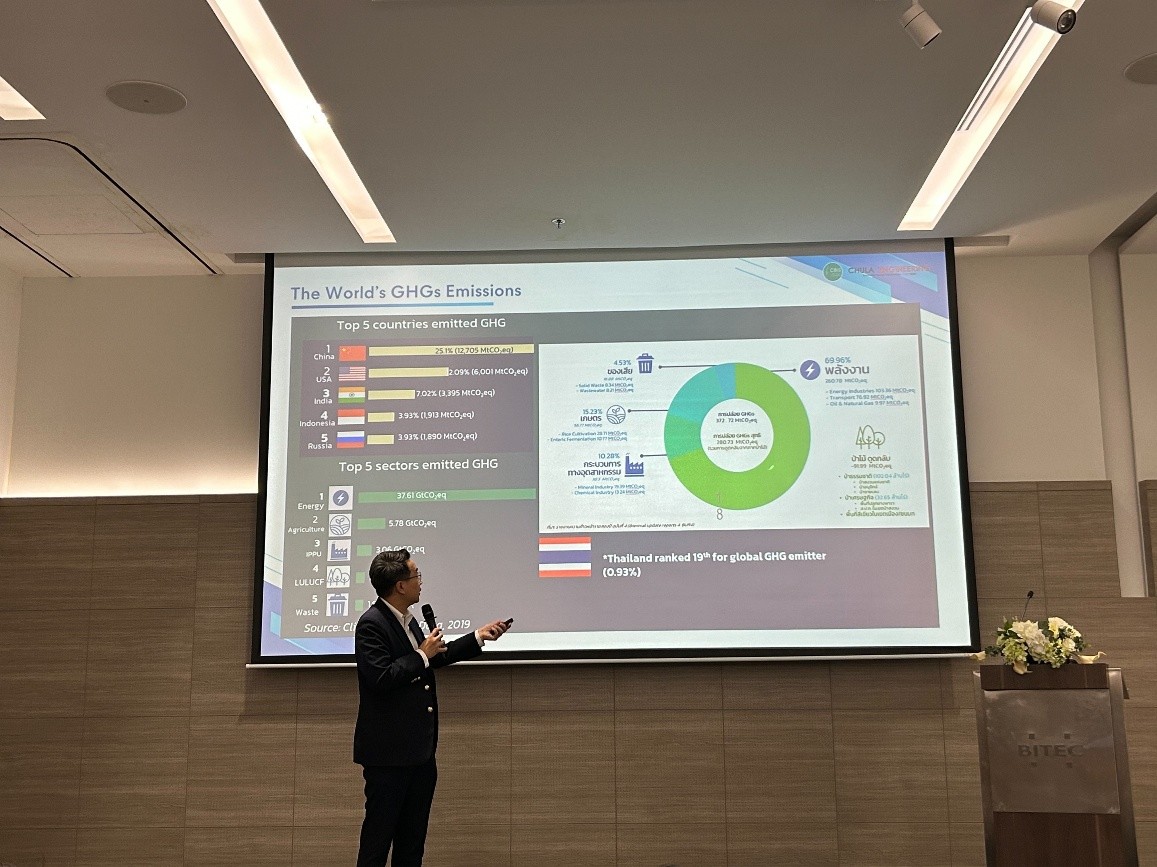
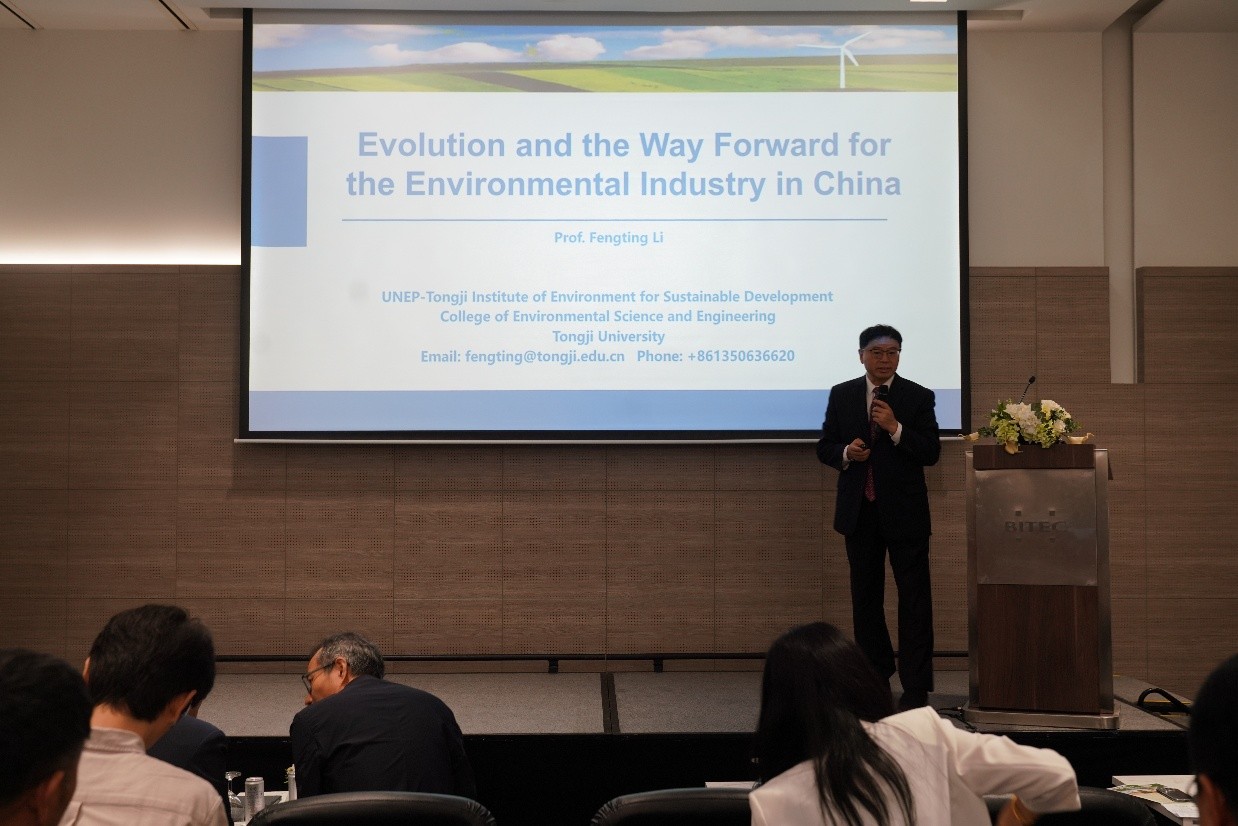
Moderated by Dr. Wenchao Xue, Director of AIT BRRC and Head of EEM at SET, the discussion panel featured notable figures such as Dr. Monthip Sriratana, Director of DBAR-ICoE Bangkok from NRCT, along with Prof. Pisut Painmanakul, Prof. Li Fengting, and Prof. Zong Bingnian from Tongji University. Prof. Pisut highlighted Thailand’s urgent need for action on PM 2.5 pollution control, stressing that China-Thailand cooperation is crucial to addressing this issue. Prof. Zong, addressing the challenges of technology transfer between the two nations, emphasized that building mutual trust is essential for effective future collaboration. Dr. Monthip, drawing from Thailand’s experience with Japan, emphasized the significance of capacity building in research and training, which requires both time and investment. She added that technology transfer must align with government policies to ensure effectiveness, proposing a memorandum of understanding (MOU) between Thailand’s Pollution Control Department and AIT to promote cross-functional cooperation. Concluding the discussion, Prof. Li suggested that academic programs could strengthen Thailand-China partnerships and support sustainable collaboration.
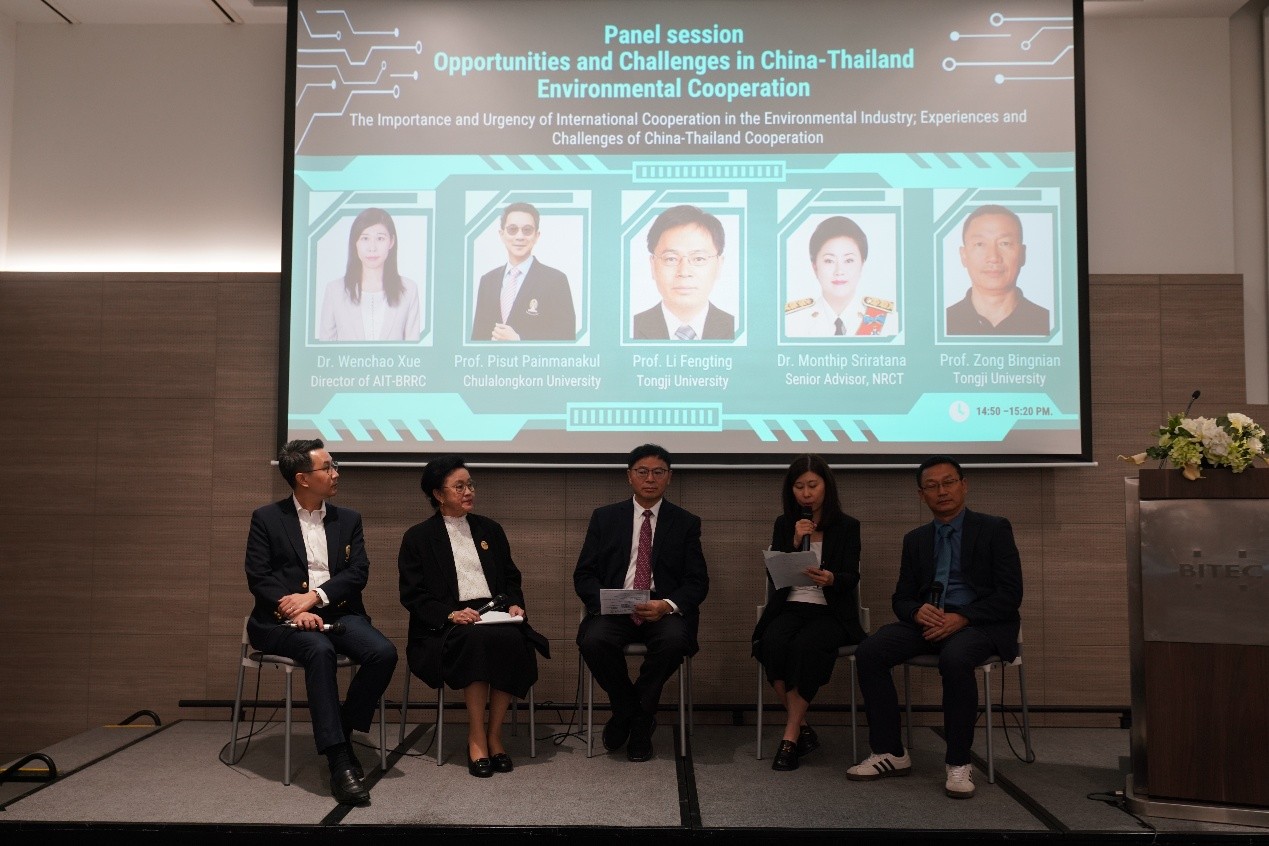
Dr. Monthip Sriratana and Prof. Li Fengting, served as representatives from Asian Institute of Technology and Tongji University, formally launched the China-Thailand Environmental Technology and Industry Cooperation Platform. Prof. Zong Bingnian outlined the platform’s action plan, noting that it aims to harness China’s expertise to address Thailand’s pollution challenges, elevate local environmental technology, and foster industrial partnerships. Key objectives include advancing Thailand’s environmental technology capabilities, positioning the nation as an ASEAN hub, and supporting these efforts through research, technology demonstrations, and green finance. Implementation will involve joint projects, talent development, and industrial park initiatives to promote sustainable ecological solutions throughout Southeast Asia.
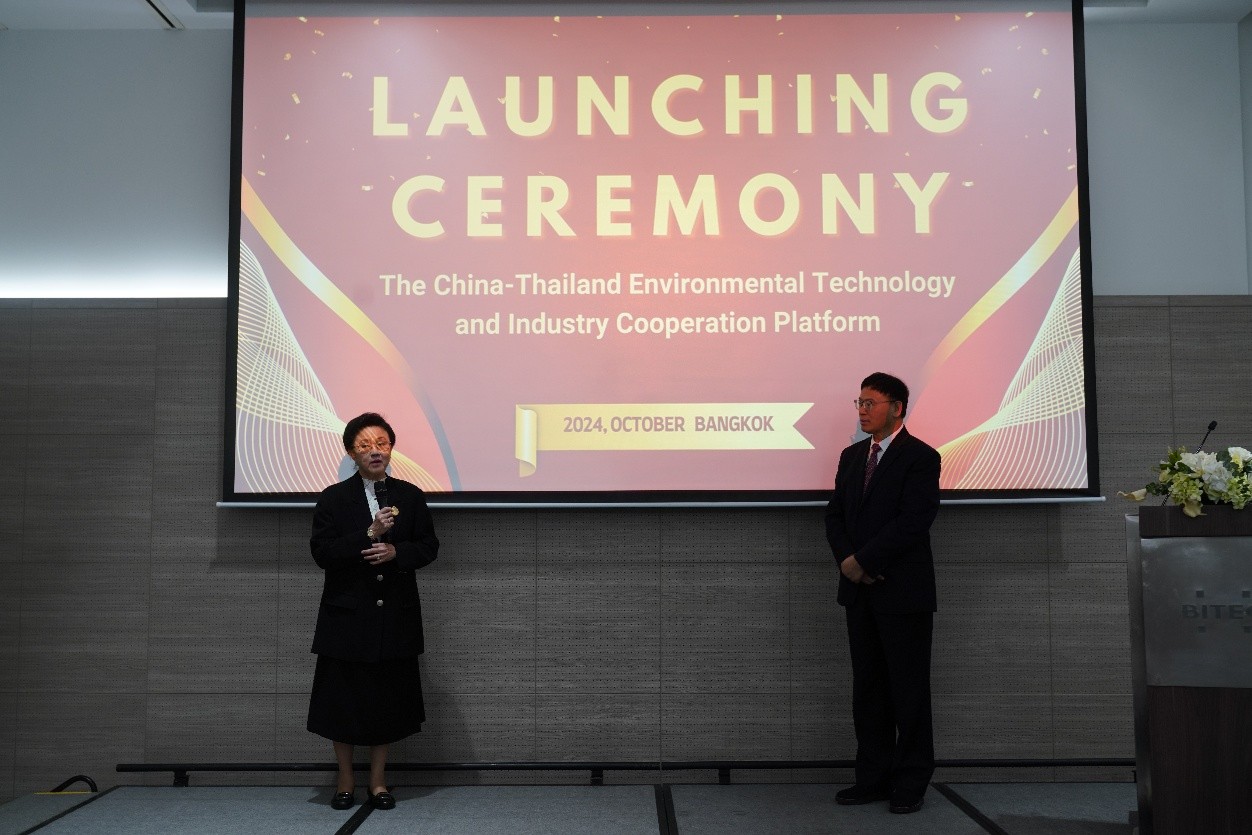
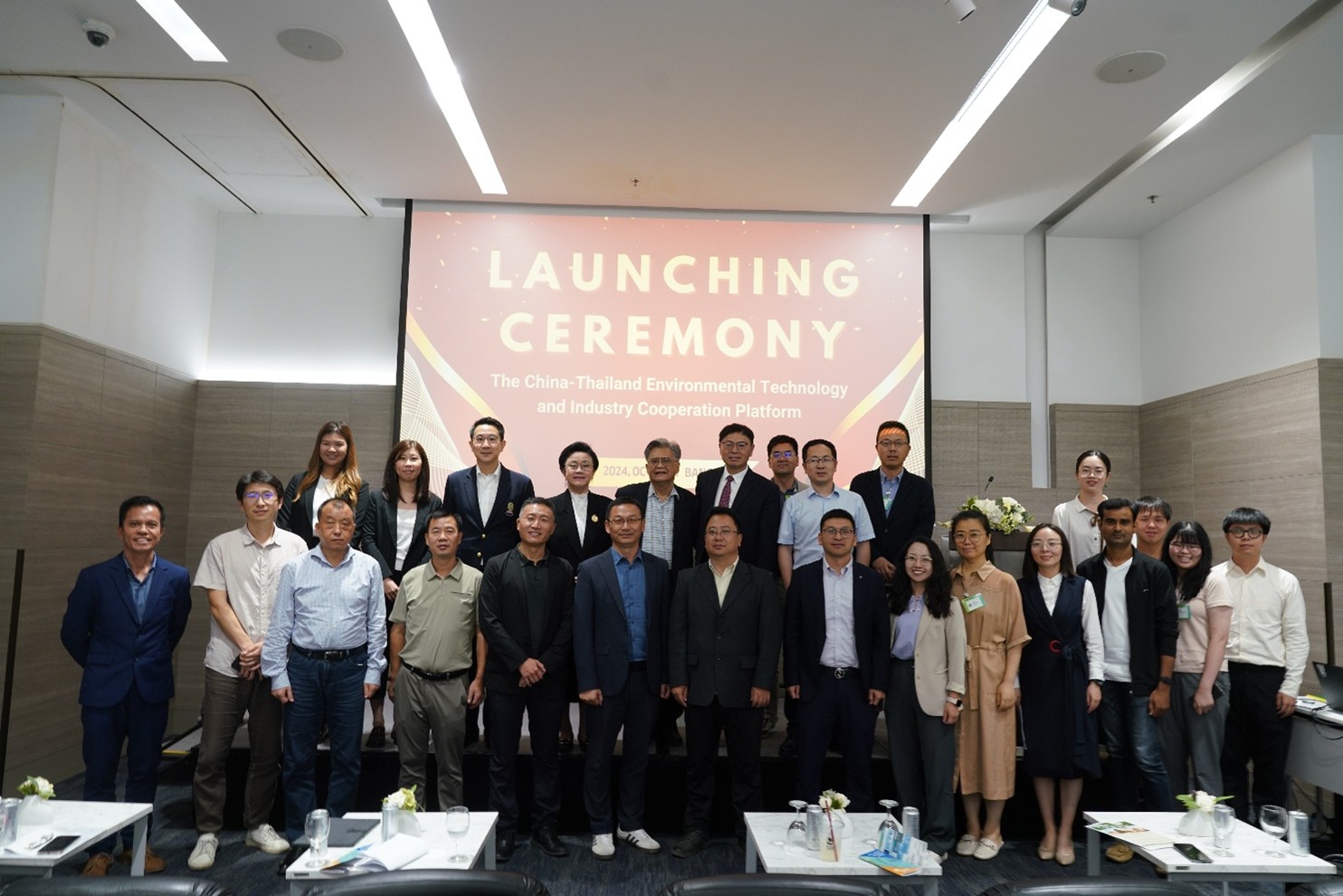
In conclusion, the China-Thailand Environmental Cooperation Forum and the launch of the China-Thailand Environmental Technology and Industry Cooperation Platform mark a significant step forward in the collaborative efforts between both nations. By bringing together leaders from government, academia, and industry, the event underscored a shared commitment to advancing sustainable practices, tackling environmental challenges, and promoting green development in Southeast Asia. The platform’s action plan, sets a clear pathway for Thailand to leverage China’s expertise in environmental technology, aiming to make Thailand a key player in ASEAN’s green economy. This cooperation not only strengthens bilateral relations but also supports broader regional sustainability goals, establishing a foundation for impactful, long-term environmental progress.

